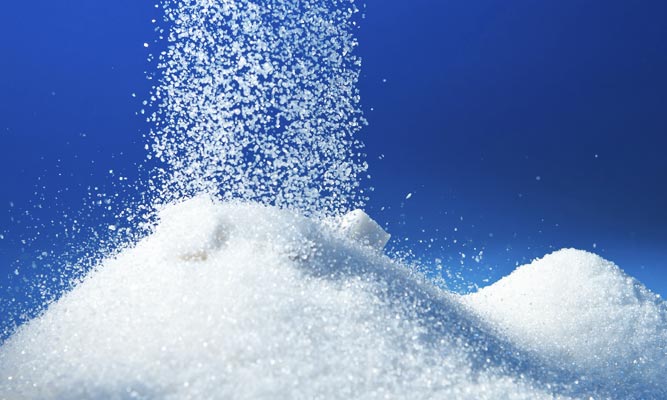
“You’re addicted,” I said matter-of-factly. Sugar had become my friend’s drug of choice, and constantly grazing on even so-called healthy hidden-sugar foods had trained her body to demand it constantly.
If you can relate to my friend’s predicament, I’ve got hopeful news: sugar addiction is not your fault.
“Being addicted to sugar and flour is not an emotional eating disorder,” says Dr. Mark Hyman, author of The Blood Sugar Solution 10-Day Detox Diet. “It’s a biological disorder, driven by hormones and neurotransmitters that fuel sugar and carb cravings — leading to uncontrolled overeating. It’s the reason nearly 70 percent of Americans and 40 percent of kids are overweight.”
Studies confirm a food addict’s brain operates similarly to a drug addict when they think about eating sugary, fatty foods. As these and other studies emerge and prominent experts speak out, sugar addiction has become a legitimate, concerning focus as sugar consumption, particularly as high-fructose corn syrup (HFCS), escalates.
“Animal studies have shown that refined sugar is more addictive than cocaine, heroin or morphine,” says Dr. Pamela Peeke, author of The Hunger Fix. “An animal will choose an Oreo over morphine. Why? This cookie has the perfect combination of sugar and fat to hijack the brain's reward center.” According to a new study published in PLoS One, sugar can be eight times more addictive than cocaine.
It’s not just the immediate gratification that creates damage. Sugar addiction also sets the stage for future hunger, cravings, and food intolerances.
One study published in The American Journal of Clinical Nutrition found high-sugar impact foods trigger the nucleus accumbens, your brain region that controls reward and craving. Researchers noted this domino addictive pattern plays a “special significance to eating behavior at the next meal.”
Experts like Dr. Robert Lustig argue hormonal havoc ensues. High blood sugar elevates insulin, which blocks your satiety hormone leptin. High levels of cortisol, your stress hormone, increase your urge for comfort foods. High cortisol during sleep increases ghrelin, your hunger hormone, so you’re more likely to ask for a stale donut the next morning with your caffeine fix.
You get the domino-effect point. From that hormonal havoc, you can begin to understand how sugar addiction occurs.
The good news is with the right strategies, you can crush your sugar addiction in just weeks. You know the usual suspects (hello, walnut brownie a la mode), yet so-called healthy foods could also feed that addiction. Bottled drinks, vinaigrette dressings, and glazed meats are among the many “sneaky sugars” that add up around your waistline.
Cold turkey isn’t the answer. Instead, I want you to gradually taper off sugar so you never feel deprived or struggle with withdrawal.
© JJ Virgin, Wellness.com
 RSS Feed
RSS Feed